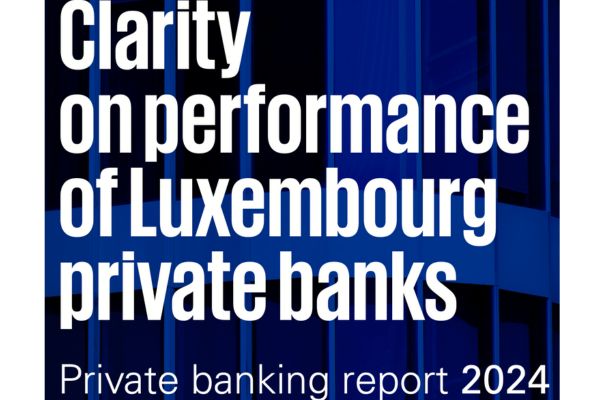
On Tuesday 4 February 2025, the KPMG-ABBL 2024 Private Banking Report, providing details of Luxembourg’s private banks was unveiled.
The report draws on 2023 financial data to provide key insights into Luxembourg’s private banking sector. For the fourth consecutive year, this study not only examined the sector’s performance and long-term trends but also offered a detailed comparison with Switzerland’s private banking market. 45 private banks took part in the survey, with a 100% response rate.
According to the report, Luxembourg’s private banking sector rebounded strongly in 2023, recovering from a challenging 2022. The sector saw improvements in median profitability and cost-income ratios. The report added that, as a result of interest income growth slowing, banks will need to explore new strategies going forward to manage rising costs. It was noted that similar difficulties are evident in the Swiss private banking sector and added that Luxembourg attracted €14 billion in net new money in 2023. It also stated that when compared with the Swiss market, Luxembourg’s medium and large banks achieved higher assets under management (AuM) per full-time equivalent (FTE) staff member, underscoring the relative efficiency of Luxembourg’s private banking sector.
Key figures in the report confirm that the Luxembourg private banking sector demonstrated asset growth of 7.3%, from €585 billion to €628 billion AuM. 77% of Luxembourg private banks increased their operating income in 2023. Operating income grew by 13.7% due to a 37.1% increase in net interest income.
The report also highlighted that in 2023, 64% of Luxembourg banks saw an increase in AuM per FTE, while 85% of banks in Switzerland experienced a decrease. Personnel costs in Luxembourg accounted for approximately 42% of total costs, which was reported as being significantly lower than in Switzerland, where personnel expenses represent 70% of total costs.
Yves Stein, Chair of ABBL’s Private Banking Group Luxembourg, stated: “Luxembourg has long been a key player in the world of private banking, renowned for its stability, innovative spirit and robust regulatory framework. However, as the world around us evolves - shaped by digital transformation, shifting client expectations and the global economy and geopolitical dynamics - our industry is at a crossroads”. He confirmed that the findings of the survey “highlight both the resilience and adaptability of Luxembourg’s private banking sector”.
Mr Stein also spoke of potential markets outside of Europe, in areas such as Latin America and Southern Europe. He acknowledged Luxembourg government’s support of the financial sector. He also underlined the need to evolve services offered to “an increasingly sophisticated and wealthy client base”, emphasising that this required “continued investment in talent, technology and training to maintain our edge”.
He stated that ABBL “is committed to supporting its members as they navigate these challenges with a special focus on talent attraction and streamlining regulation”. He also referenced the current housing crisis saying that “while solving the housing crisis isn’t solely the responsibility of banks, the ABBL is actively engaging with the government, proposing measures to revitalize the housing sector”. He continued by clarifying that ABBL “will continue to capitalise on our position as the preferred interlocutor for our supervisory authority, to work closely with the CSSF to create more agile and proportionate regulatory frameworks. At the same time, we are promoting mutualisation initiatives within the financial centre to ease these processes for both clients and institutions”.
HOM








